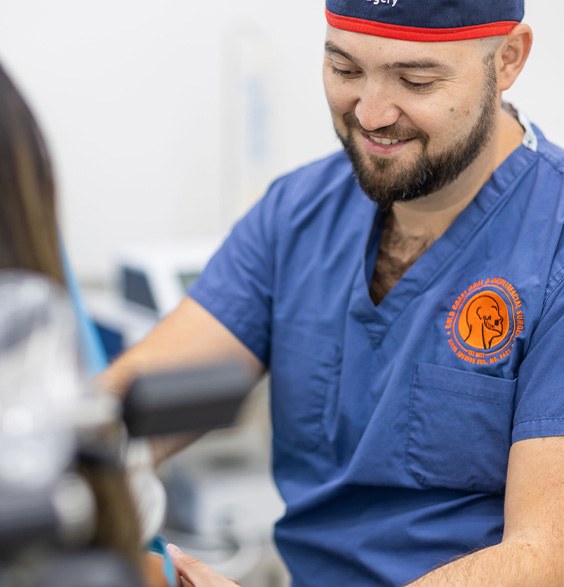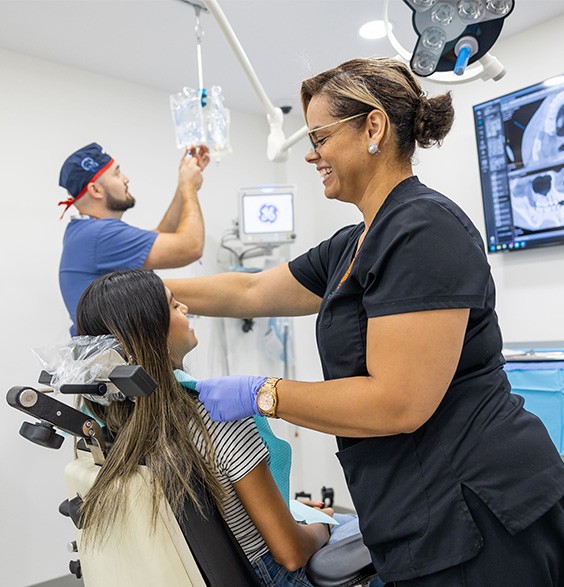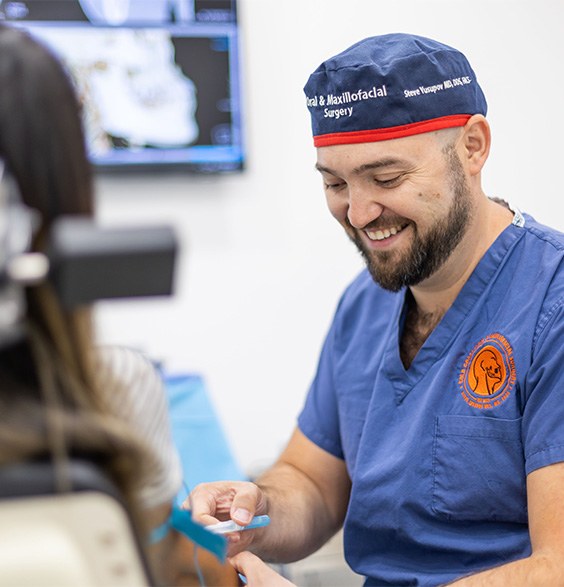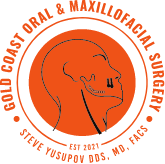IV Anesthesia – Roslyn, NY
Effective Solutions
for Stress-Free Surgeries
It is common for patients to feel anxious about oral surgery. Even if the procedure is explained beforehand, the waiting can often provoke nervousness. We offer IV anesthesia to reduce a patient’s sense of fear and create a more relaxing and comfortable environment. As an oral surgeon experienced in administering IV anesthesia, Dr. Yusupov will ensure you are at ease prior to your surgery. Contact our specialty dental office to learn how you can benefit from oral and maxillofacial surgery IV anesthesia in Roslyn, NY.
Why Choose Gold Coast Oral & Maxillofacial Surgery Steve Yusupov DDS, MD, FACS for IV Anesthesia?
-
1 Comfortable
and Welcoming Environment -
2 Compassionate
and Gentle Dental Team - 3 Safe and Effective Treatment Designed to Reduce Anxiety and Ensure Proper Care
What Is IV Anesthesia?

Dental procedures, especially oral surgery are unpleasant to undergo to say the least. To assure the most optimal experience of our patients, including the most anxious and dental phobics, we offer sedation for all of the procedures performed at the Gold Coast Oral & Maxillofacial Surgery Steve Yusupov DDS, MD, FACS office. In a nutshell, the intravenous catheter is placed into the arm and the next thing the patient remembers is waking up from after the procedure is over. Dr. Yusupov is a dentist and a medical doctor with extensive training in adult and pediatric anesthesia. The specialty dental office is equipped with standard American Society of Anesthesiologists monitoring equipment and is prepared to manage a patient under general anesthesia. While Dr. Yusupov uses his dental and surgical expertise to perform the procedure, his medical background and anesthesia training assures the patients safety while under the sedation. Everyone is a candidate for surgery at GCOMS, even the most medically complex patients. In cases where there are extremes of age or medical comorbidities, Dr. Yusupov maintains hospital privileges to perform the surgery in the safety of the hospital environment.
Candidates for IV Anesthesia

Not everyone should receive IV anesthesia, as certain medications and health conditions can increase the risk for potential complications. However, if you experience any of the following, you may be eligible:
- You fear oral surgery or dental treatments as a result of traumatic experiences
- You have a sensitive gag reflex
- You have little success with other forms of sedation/anesthesia
- You are preparing to undergo a complex procedure
- You have difficulty sitting still for extended periods
Preparing for IV Anesthesia

We will provide you with guidelines to follow before your procedure to ensure you are fully prepared to receive IV anesthesia. It is best if you avoid eating or drinking anything (including water) at least eight hours before your surgery. It is recommended that you wear a loose-fitted blouse or shirt to make the placement of the IV easier.
If you wear contacts, be sure to remove them immediately before your procedure, and if you have any type of prosthesis (i.e., denture) you’ll need to remove it as well.
The IV Anesthesia Process
Once a healthy vein is located, we will insert the IV into your arm or hand and start administering the medication. After a brief time, you will begin to feel calmer and more relaxed, and any anxiety or nervousness will dissipate. Your vitals will be monitored throughout your procedure to ensure you remain safe and comfortable. As the surgery progresses, we can adjust the levels as needed.
Once your procedure is complete, we will remove the IV. Because the medication takes time to wear off, you’ll need to have someone escort you to and from your appointment, as you will likely be drowsy.
Frequently Asked Questions, Answered!

Will I Remember Anything with IV Anesthesia?
With IV anesthesia, you're likely to experience significant memory loss during your dental procedure. While you'll technically be awake, you probably won't recall much, if anything, afterward. This memory loss effect is more pronounced with IV sedation compared to oral conscious sedation and nitrous oxide. It's a reassuring aspect for patients with extreme anxiety or unpleasant memories of past dental experiences, as it makes undergoing dental care much more manageable.
Is IV Anesthesia Safe?
IV anesthesia, when administered by qualified professionals, is generally considered a safe option for most patients. However, before proceeding with IV anesthesia, Dr. Yusupov will conduct a thorough review of your medical history and current medications to assess any potential risks or interactions.
During the sedation process, Dr. Yusupov will closely monitor your vital signs, including blood pressure, oxygen levels, and heart rate, to ensure your safety throughout the procedure. It's essential to seek a dental professional with plenty of experience and qualifications in administering IV anesthesia to further enhance the safety and effectiveness of your dental care.
How Much Does IV Anesthesia Cost?
IV anesthesia generally has a higher cost compared to nitrous oxide and oral conscious sedation due to the increased risks and the additional training required to administer the sedative. While nitrous oxide and oral conscious sedation typically range in cost from a few hundred dollars, IV anesthesia may cost significantly more.
Of course, the exact cost of IV anesthesia will often depend on the duration of its effects during your procedure. Fortunately, our practice offers financing options such as CareCredit to help make the cost more manageable for patients seeking dental care with sedation. It's important to discuss pricing and financing options with our team to find a solution that fits your needs and budget.
How Long Does IV Anesthesia Last?
It depends! With IV anesthesia, much of the sedative's effects will diminish shortly after your procedure. However, you may still feel groggy for several hours afterward. Therefore, it's crucial to arrange for someone to drive you home and avoid operating heavy machinery or making important decisions until the effects have fully worn off.
Dental Implants Oral Surgery Maxillofacial Surgery View Our Services
